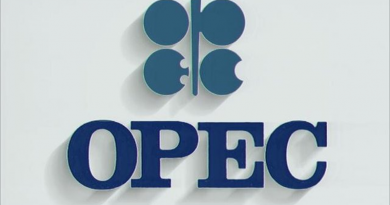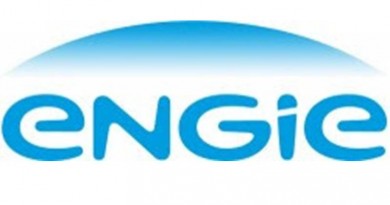FGN and the African Energy Chamber partnership targets investments in oil resources
The African Energy Chamber has entered into agreements with the Nigerian government in order to attract new investment into the nation’s rich oil resources.
The newly-passed Petroleum Industry Bill (PIB) is designed to attract further global investment to the Niger Delta, the largest oil-producing region in the continent. New oil corporations such as Decklar Resources Inc. are following suit and have set up new drilling operations that are prepared for near-term production.
Oil investment continues to ramp up worldwide as Africa Oil Corp announces promising second quarter results amid growing oil production revenues.
As oil prices rise, major oil company ConocoPhillips has reported a quarterly income just shy of $1 billion and exceeded investor expectations. Oklahoma oil producer Devon Energy Corp. announced $155 million in dividends for its shareholders as the global energy market continues to expand. Finally, Phillips 66 (NYSE:PSX) has recently paid out healthy quarterly dividends of $0.90 per share to its investors. New developments in the global oil and gas market are showing growth for investors.
Nigeria Seeks New Investment Through Passing Petroleum Industry Bill
The Nigerian government has been positioning itself to meet the demand of the ever-growing energy market through new legislation. Through the passage of the Petroleum Industry Bill (PIB), the nation hopes to attract investment into energy projects through domestic and international companies.
As of today, Nigeria remains the leading oil producer of Africa, with just under 2 million barrels extracted from the Niger Delta every day. Nigerian oil production sits at a value of roughly $143 million per day or $52 billion per year. While most of this production is dominated by foreign oil corporations like Royal Dutch Shell, Decklar Resources Inc. (TSXV:DKL) (OTCQX: DKLRF) is taking advantage of unique proven undeveloped opportunities in a unique way. The low-risk energy company is establishing drilling operations over previously discovered and ignored oil deposits in the Delta. Due to the local scale of the operations, the company is partnering with local communities and providing infrastructure development opportunities in the region.
On September 1, Decklar Resources Inc. announced that Oza 1 has been re-entered successfully with old tubing and completion equipment removed, well maintenance performed, and the deeper zones cemented off to isolate them from the target reservoirs. A new wellhead has been installed, the site prepared and production testing equipment installed for the re-completion of the target zones in the Oza-1 well.
Then on September 30, Decklar announced that it has completed initial flow testing of the remaining two target zones, which offered promising well deliverability and commercial flow rates. According to the update, the initial flow testing of the L2.4 sand resulted in a flow rate of 10.3 million standard cubic feet of natural gas per day and L2.2 sand resulted in a flow rate of 1,361 bopd. Following successful testing, the company expects the well to be put on commercial production after the completion equipment is installed.
“We are very pleased with these initial test results from the first three target zones of the Oza-1 well re-entry,” said Decklar Resources CEO Duncan Blount. “After such promising well deliverability and commercial flow rates, we now look forward to completing the remaining Oza-1 well testing activities as we work towards commencing commercial production.”
Decklar Resources also recently closed a purchasing agreement with Purion Energy Limited in order to expand operations into the local Asaramatoru Oil Field, which is also located in OML 11, the same block where Decklar is currently developing the Oza Oil Field. Asaramatoru, which was formerly operated by Shell Petroleum Development Co. of Nigeria, was awarded to Prime and Suffolk by the Nigerian government in 2004 as part of the first Marginal Field Program.
Prime and Suffolk reentered the existing two wells and commenced initial production testing activities in 2014, producing an average of 2,700 b/d of oil during intermittent production over 3 years.
Decklar Resources and Prime are now moving forward with a full field development plan that will include expansion of the processing infrastructure to enable handling and processing of up to 20,000 b/d of crude for the expected peak production levels and includes installing a 10 km export flowline from the field to a tie-in point at the Oloma flow station, which is connected to the Bonny export terminal, the largest on the African continent.
Sustainability Initiatives Attracting New Investment to Energy Companies
Decklar Resources Inc. is spearheading its new oil developments through cooperation with existing oil industry personnel in the Delta. The company has appointed a management team that is focused on sustainable development of infrastructure for communities surrounding the oil fields.
Africa Oil Corp recently announced high revenues for Q2 2021 and the receipt of dividends from its 50% acquisition in Petroleo Brasileiro SA Petrobras.
Africa Oil Corp has a substantial interest in expanding crude production networks. Its acquisition of Petroleo Brasileiro SA Petrobras is in line with capital flows into the 70% ESG ranked company, a current investment trend reflected in other oil companies.
Along with its net-zero emissions goals, ConocoPhillips (NYSE:COP) has actively pursued more favorable ESG investment metrics in order to attract new capital. The company was recently downgraded in ESG risk from “Severe” to “High” in its measured exposure to social, environmental, and governance issues. The move to decrease ESG risk from the industry leader is being made to capitalize on the recent investment trend.
More companies are following suit, and Devon Energy Corp. has managed to secure a rank of 27 out of 282 oil and gas producers. This puts the company in the top 9.5% percent of producers in the industry in terms of ESG metrics. This move attracts shareholders who are currently seeking large returns in the energy industry with a relatively lower impact on the environment. More oil companies across the globe are following suit.
Finally, Phillips 66 (NYSE:PSX) is following up on its goals in its 2020 sustainability report citing a profitable recovery from recent geopolitical turmoil in oil markets. The company seeks to follow new standards for ESG accounting transparency in order to encourage more responsible development in its regional interests. The company is primarily focused on oil production sites in Texas, Oklahoma, and Kansas.
Proposals of new models for energy production are setting the recent tone for oil and gas development. Decklar Resources Inc. is following suit through low-risk developments at a local scale in the Niger Delta.




